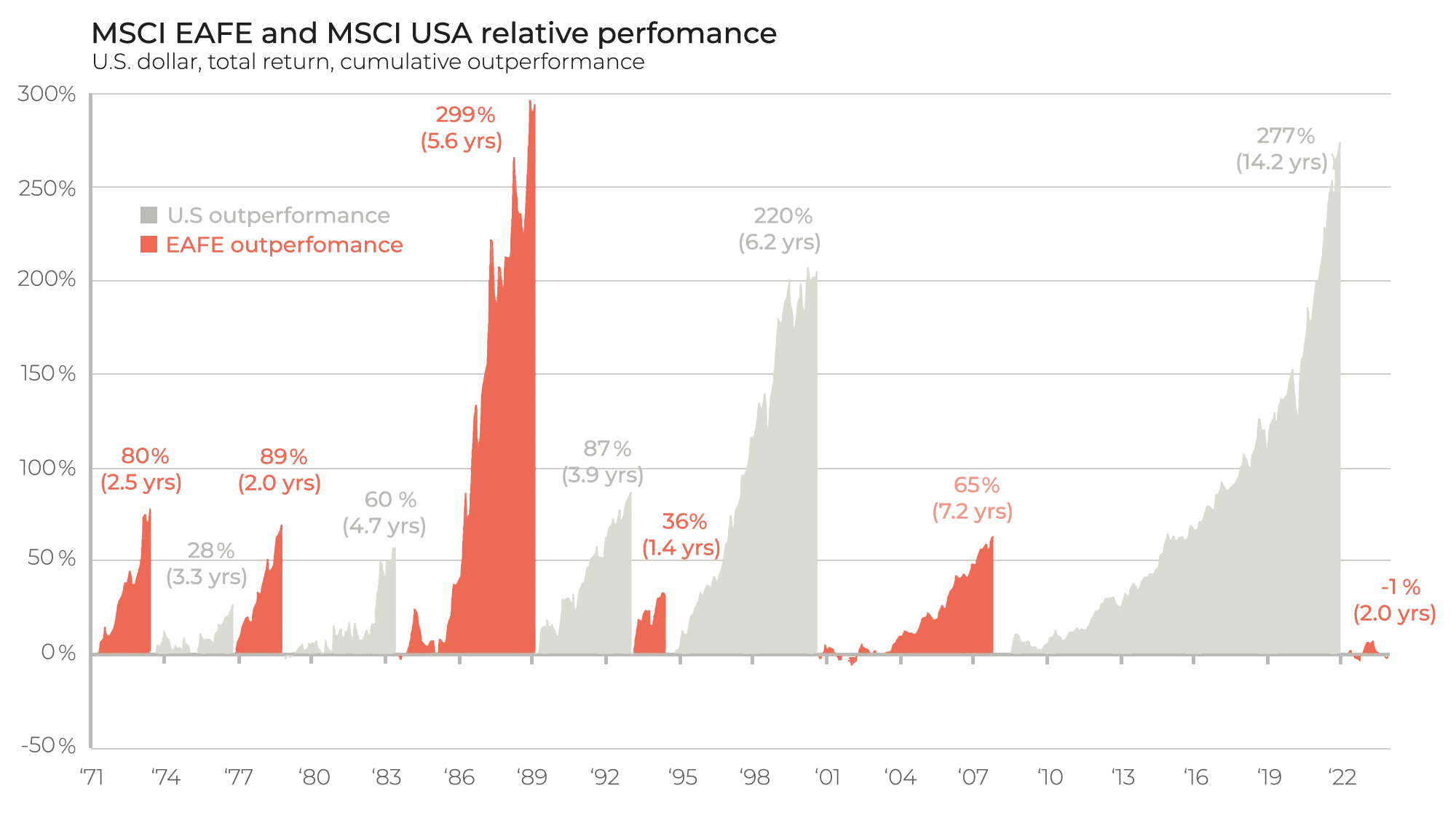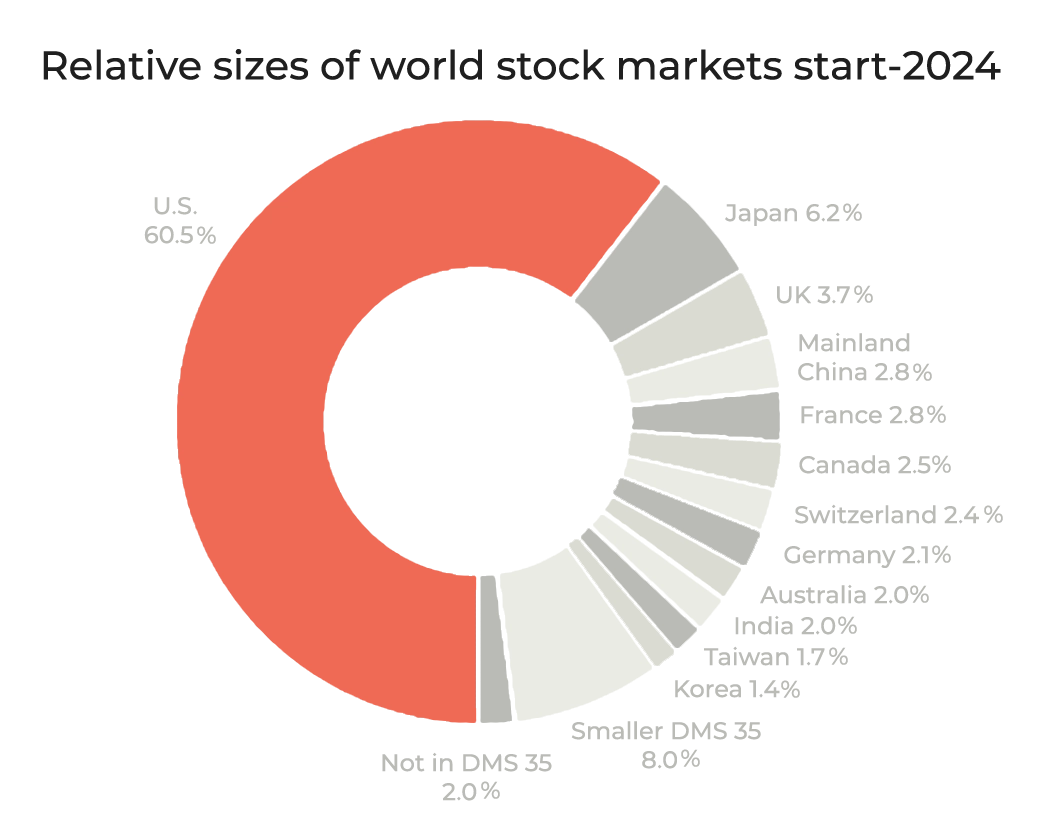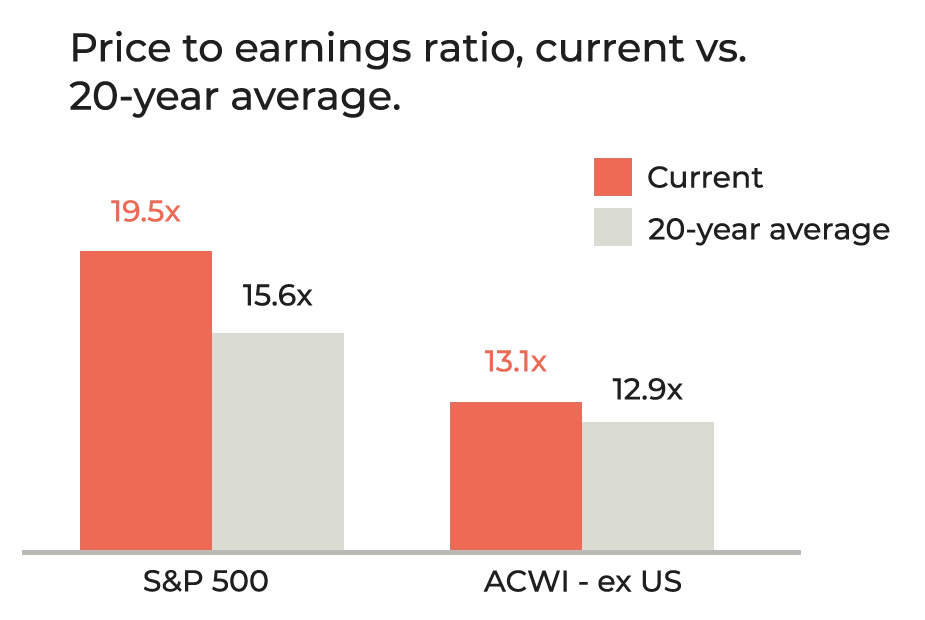Think Global

There’s no place like home. And for investors, there’s no place like their home market: throughout the world, their portfolios are too exposed to their domestic stock markets. Broad indexing is common within markets, but the argument for indexing applies across global markets too: a truly passive portfolio should own stocks in each country in proportion to their share of the total.
US-based investors are not immune from home-country bias, and they may well ask: why bother looking abroad? Here are some reasons they may use to stay close to home:
- The US outperforms. Indeed it has outperformed for the past decade, but it has also underperformed for long stretches in the past and might reasonably be expected to do so again. Rather than try to predict the next turn in the cycle (a fool’s errand), the prudent course of action is to hold a geographically diversified portfolio.

- The US is 60% of the global market. Most investors don’t invest 100% of their portfolio in stocks; they usually own some bonds as well. For the same reasons, the principle of diversification suggests not putting all one’s eggs in the American basket. And changes in the composition of the global economy have had and will have an impact on the relative size of markets.

- US-based companies derive a lot of their sales from the rest of the world, so a US-centric portfolio is already diversified. Not as much as other developed-market companies. For example, European companies have penetrated the emerging markets (which include the largest and fastest-growing populations) much more deeply than their US counterparts. Why not skate to where the puck is going?
- American companies dominate their industries and deserve to be more expensive. America doesn’t have a monopoly on dominant companies.

- America enjoys a unique culture of risk-taking and innovation, rule of law, and a sovereign territory defended by two oceans. Investing abroad means investing in stagnant economies and taking unwanted political risk. They are expensive, but deserve to be. None of these advantages are news to market participants and are likely to be reflected in current prices. US stocks often trade rich to foreign, but the gap has widened substantially in recent years. Market history tells us that higher current valuations lead to lower future returns and vice versa!
Furthermore, current US market prices reflect unusually high corporate profit margins, which tend to invite fierce competition and government regulation. Add to the mix a ballooning national debt, a looming Social Security crisis, and over-extended military commitments–funding of which will likely lead to higher corporate taxes and lower profits.

And above all, investors should embrace diversification as a guiding principle. Diversification means not being fully invested in the hottest stock or top-performing asset class: a near-impossible feat. Diversification means always having to be sorry about something, but it’s the surest way not to lose your shirt. Diversification allows an investor to be prepared, rather than try to predict. The past may be prologue, but the future may be something entirely different.
Disclaimer: The opinions voiced and information provided in this document is for informational and educational purposes only. It should not be considered investment, financial, or legal advice. Nothing herein constitutes a recommendation to buy, sell, or hold any security or financial instrument. Magnolia Private Wealth does not provide tax, legal or accounting advice. Investing involves risk, including the potential loss of principal. You should consult with a qualified financial advisor, tax professional, or other appropriate professional before making any financial decisions. The author and publisher assume no liability for any losses or damages resulting from the use of this information.
Insights from Our Team.




